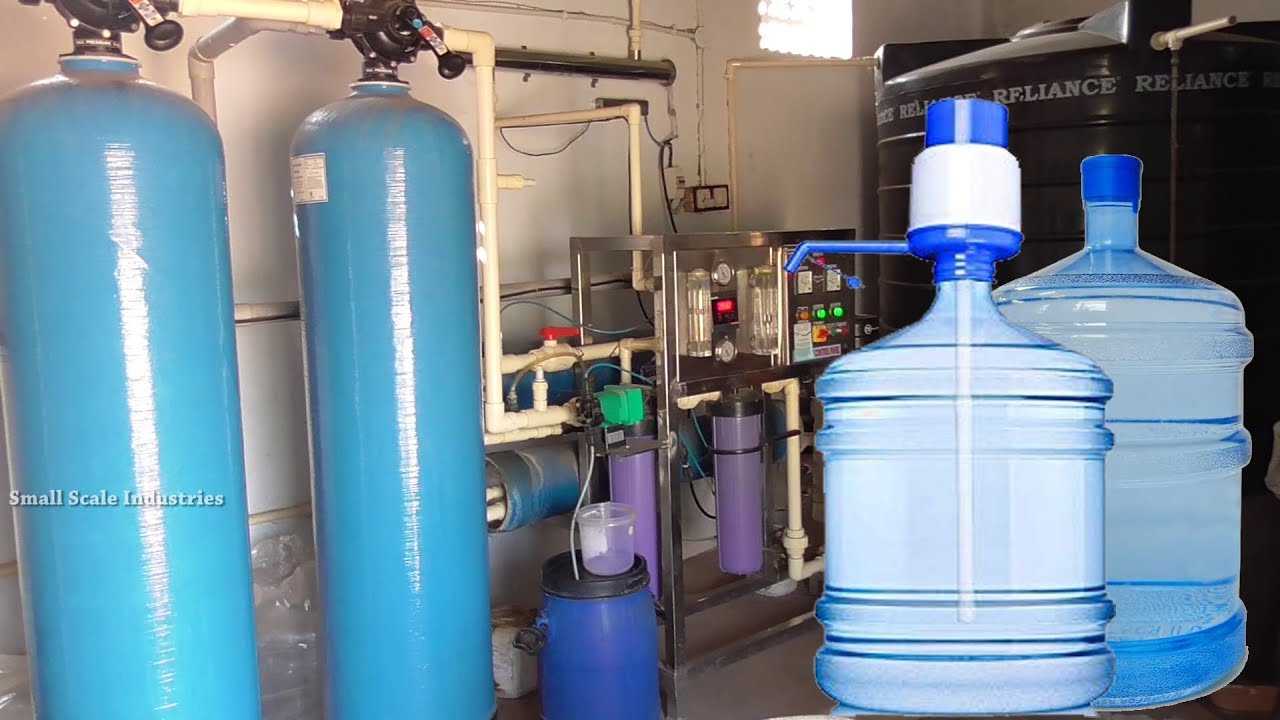Mineral Water Plant: Starting a mineral water plant in a village can be a profitable business, especially with the increasing demand for clean drinking water. This article will guide you through the process of setting up a small scale mineral water business, including bank loans, government subsidies, marketing strategies, investment and profit margins.
Mineral water industry is growing rapidly, the market is expected to grow big in coming years. The shift from tap water to bottled mineral water is driven by health consciousness among consumers, especially in rural areas where clean water is not easily available. By 2023 mineral water consumption market is expected to grow from ₹160 billion to ₹403 billion, a big opportunity for new entrants.
Table of Contents
How to start a Mineral Water Plant
1. Research and Planning
Do market research to know the local demand and competition. Identify the natural water sources like springs or borewells which is must for mineral water production.
2. Legal Requirements and Licenses
Starting a mineral water plant requires following regulations:
- Business Registration: Register your business as a company.
- Licenses: Get necessary licenses including ISI certification, food safety certifications and pollution control permits. These may vary from state to state so check with local authorities.
- Water Testing: Test the water quality through authorized laboratories.
3. Location and Infrastructure
Choose a location with access to water source. Minimum space required is around 1000 sq ft which should have space for machinery, storage and processing area. Ensure the site has power supply and logistical access for distribution.
4. Investment in Equipment
Invest in essential equipment for water purification and bottling. Main equipment are:
- Water treatment machines
- Sterilizers
- Filling machines
- Storage tanks
- Conveyors and sealers
If budget is constraint, consider leasing equipment or go for semi-automatic systems to reduce initial investment.
5. Staffing
Recruit a dedicated team to manage the operations. This includes skilled workers for machinery operation, quality control and distribution. A motivated team is key to your business success.
6. Marketing Strategy
Develop a solid marketing plan to promote your mineral water brand. Use local advertising, social media and partnerships with local businesses. Highlight the health benefits of your product and ensure consistency to build a loyal customer base.
Funding
Bank Loans and Government Schemes
To fund your mineral water plant consider the following:
- Bank Loans: Approach local banks for business loans. Make a solid business plan that has your market research, financial projections and operational strategies to increase your chances of approval.
- Government Schemes: Look for government schemes for small businesses in rural areas. These may be grants or low interest loans that can reduce your financial burden.
Government Subsidies
When starting a mineral water plant in rural areas, entrepreneurs can get various government subsidies and financial assistance. Here are some of the subsidies:
1. Subsidy for Small Scale Industries (SSI)
Government offers 35% to 50% of the project cost for small scale industries including mineral water plant. This subsidy is to promote entrepreneurship in rural areas and can reduce the initial investment burden on new businesses.
2. Bank Loans
Banks provide loans up to 85% of the project cost for setting up a mineral water plant. This is very helpful for entrepreneurs who don’t have enough capital to start the business. The loans have good terms, lower interest rates and longer repayment period.
3. Jal Jeevan Mission
Under Jal Jeevan Mission, government aims to provide safe and adequate drinking water through individual household tap connections. Although this scheme is primarily for water supply, it can indirectly support mineral water business by improving the overall water infrastructure in rural areas and increase the demand of packaged drinking water.
4. NABARD Support
National Bank for Agriculture and Rural Development (NABARD) provides financial support for rural development projects including water supply projects. NABARD support can cover a big portion of the project cost and can help to set up mineral water plant in rural areas.
5. State Government Schemes
State governments also have their own schemes for rural entrepreneurship. These may include grants, low interest loans and technical assistance for setting up water purification and bottling plant. Check with your state department for the schemes available in your area.
Investment and Profit
Initial investment can vary greatly based on location, equipment and scale. A small plant can cost ₹10 to ₹20 lakhs. Profit margins in mineral water business can be 20% to 30% based on operational efficiency and market pricing.
Summary
Starting a mineral water plant in a village is a good business idea with increasing health awareness and demand for clean water. Follow the steps above—research thoroughly, comply with rules, invest wisely and market well and you will be successful. With proper planning and execution this business will give you good returns and benefit your community’s health.
